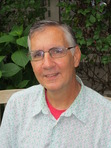'Cataclysmic Change'
An elegant summary of Pennsylvania’s fraught history with its original people has just been posted on the online Encyclopedia of Greater Philadelphia. A good friend who runs a Philadelphia tour-guide business alerted me to the new essay, and now I commend it to your reading as well.
The author, Gettysburg College history professor Timothy J. Shannon, highlights many of the points that come through in Visions of Teaoga, my historical novel about Indian-settler conflicts in the 1700s. His opening passage captures the problem: “Relations between Pennsylvania’s Native American and European peoples underwent cataclysmic change Read More
The author, Gettysburg College history professor Timothy J. Shannon, highlights many of the points that come through in Visions of Teaoga, my historical novel about Indian-settler conflicts in the 1700s. His opening passage captures the problem: “Relations between Pennsylvania’s Native American and European peoples underwent cataclysmic change Read More
Published on May 30, 2015 22:00
No comments have been added yet.
The Slave as "Crushed Vegetable''
In researching the Underground Railroad past of my hometown, Waverly, Pa., I came across a fascinating explication of the abolition mission, at least as it was understood by white participants in the
In researching the Underground Railroad past of my hometown, Waverly, Pa., I came across a fascinating explication of the abolition mission, at least as it was understood by white participants in the 1830s. I’m at the point in my book manuscript when the quote fits in---when white Waverly was helping to set up its own settlement of fugitive slaves—and I recently shared the lengthy quote with a key supporter of my work. I invite you to go to my blog to read it, too.
They are the words of John Mann, president of the Anti-Slavery and Free Discussion Society. In a 1836 speech, he likened the slave to a plant that "may have remained in an unnatural position, so long, as to have acquired a deformity," and said "the careful husbandman will stake it up, and assist it to regain its proper form." In that way, whites have a duty to help slaves rise and support themselves. ...more
They are the words of John Mann, president of the Anti-Slavery and Free Discussion Society. In a 1836 speech, he likened the slave to a plant that "may have remained in an unnatural position, so long, as to have acquired a deformity," and said "the careful husbandman will stake it up, and assist it to regain its proper form." In that way, whites have a duty to help slaves rise and support themselves. ...more
- Jim Remsen's profile
- 1 follower



